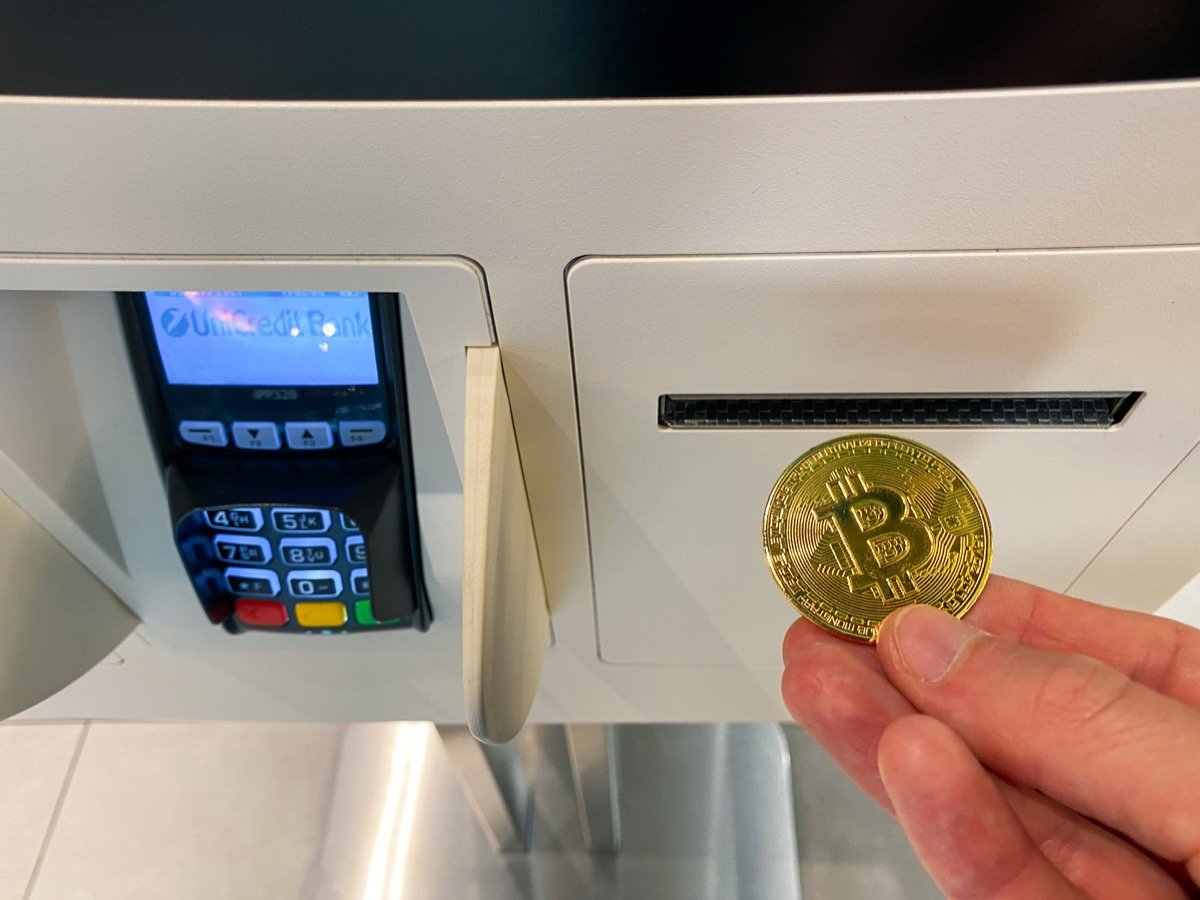
Cryptocurrencies may appear to have gone mainstream given their media coverage, but widespread adoption of crypto payments has yet to occur.
That’s not entirely surprising, given the benefits and drawbacks of accepting cryptocurrency as payment. As Emily Heaslip at the U.S. Chamber of Commerce’s blog explains, on the one hand cryptocurrencies could facilitate better payment security and lower transaction fees. On the other, there are tax implications, and many still consider cryptocurrency risky.
Whether you’re ready to take the plunge or not, it’s still important to understand what the cryptocurrency payment landscape looks like, both from the perspective of consumers and businesses.
With that in mind, here is everything business owners, CFOs and executives need to know.
How Can Businesses Currently Accept Crypto Payments?
There are generally two approaches to taking crypto payments at the moment. The first is to use a third party to handle almost everything. The second is to leverage cryptocurrency’s trustless relationships and create your own fee-free payment system.
Regardless of which you choose, you’ll need a crypto wallet. “A wallet works just like a bank account, where you send and receive digital money, says Joshua Sophy, assistant editor for Small Business Trends. “Since chances are you’ll accept different types of crypto from various customers, it’s best to go for a multi-cryptocurrency wallet that holds several types of cryptocurrencies.”
Once you have a wallet, there are plenty of plug-ins for e-commerce platforms like Shopify and WooCommerce that can enable crypto payments, he adds. You can also sign up for a payment gateway that facilitates crypto payments such as BitPay or NOWPayments.
Of course, the beauty of cryptocurrency is that businesses don’t need to use a third-party payment tool, says Kurt Woock, a writer at NerdWallet. Peer-to-peer transactions without intermediaries is why cryptocurrencies like Bitcoin exist.
Building a secure and efficient workflow requires expert knowledge and can be time- and resource-intensive, however.
Should Businesses Be Wary of Cryptocurrencies?
One of the biggest concerns for U.S.-based businesses will be taxes.
The IRS’s decision in 2014 to treat Bitcoin as an asset class means businesses will be charged capital gains tax every time they sell, buy or use it, tech journalist Amrita Khalid writes at INC. This makes recordkeeping extra complicated. By law, a business must record the value of a crypto transaction in dollars using the market value of the cryptocurrency at the moment the transaction took place.
Because the market values of cryptocurrencies can fluctuate wildly, the value of a given transaction could drop — but the business will still pay taxes on the higher-value transaction. This means headaches for your accountants, and it exposes your business to the risks of price volatility.
Regulation surrounding cryptocurrency is also evolving, writes Adam Uzialko, a writer and editor at Business News Daily. “Any entrepreneur who chooses to accept cryptocurrency should be prepared to pivot and adapt to periodic changes in the law as a result. These changes could continue into the foreseeable future as cryptocurrency adoption expands and new problems and difficulties arise.”

How Does Consumer Sentiment Stack Up?
Among consumers, few people hold or use cryptocurrencies — but many more are getting interested in it.
A 2021 survey by BitPay and PYMNTS found just 12 percent of consumers own one or more cryptocurrencies. But more than half of those consumers used cryptocurrencies to make at least one payment in the previous 12 months. Further, 59 percent of non-crypto-owning consumers said they were interested in making purchases in the future.
That being said, paying for goods in cryptocurrencies remains a challenge for many consumers. These challenges include the volatility of coins, inefficient and expensive conversions from fiat money, and a lack of consumer-friendly wallets that focus on spending rather than trading, fintech reporter Tomio Geron writes.
Who Is Accepting Crypto Payments Already?
A 2021 survey by online invoicing provider Skynova found 32 percent of U.S-based small businesses accepted cryptocurrencies as payment.
Plenty of big-name companies accept crypto payments, says David Walsh at Euronews. They include Pavilion Hotels & Resorts, the first international hotel chain to accept cryptocurrency; AXA Insurance; and Latvian airline airBaltic, which has been accepting Bitcoin since 2014.
On top of that, Florida Governor Ron DeSantis is keen to let businesses pay state fees using cryptocurrency, Bloomberg’s Jonathan Levin and Danielle Moran report.
Should Your Business Be Next?
The cryptocurrency space continues to evolve rapidly, and many businesses feel they cannot sit on the sidelines any longer. In 2022, look for businesses of all sizes to start seriously exploring how they can adopt cryptocurrency payments.
Images by: Jievani Weerasinghe, olieman.eth
